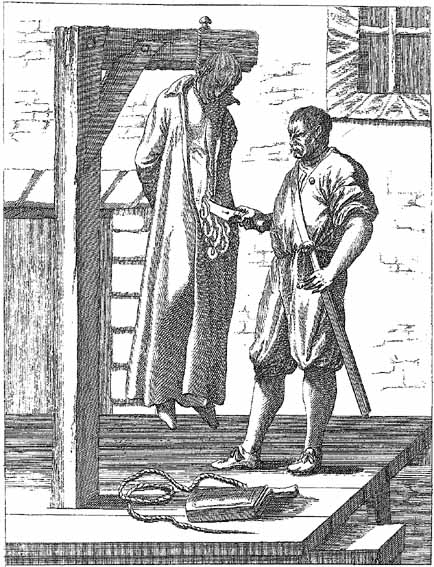Venerable Brian Cansfield, SJ
Born: 1582
Died: August 3, 1645
Declared Venerable in 1886
 Brian Cansfield was born in Roberts Hall, Tatham, in Lancashire, England. He received his early education in the local school and his upbringing was Protestant. His brothers who were Catholics continually encouraged him to adopt their faith which he finally did at the age of sixteen when he went to study at the English College at Saint-Omer in Flanders. Three years later, he went to the English College in Rome but because he had decided to enter the Society, he returned to Flanders and became a Jesuit in 1604 and was ordained when he completed his theological studies.
Brian Cansfield was born in Roberts Hall, Tatham, in Lancashire, England. He received his early education in the local school and his upbringing was Protestant. His brothers who were Catholics continually encouraged him to adopt their faith which he finally did at the age of sixteen when he went to study at the English College at Saint-Omer in Flanders. Three years later, he went to the English College in Rome but because he had decided to enter the Society, he returned to Flanders and became a Jesuit in 1604 and was ordained when he completed his theological studies.
His desire to work for the persecuted Church was eventually fulfilled in 1618 when he returned to England. He laboured in Lancashire, Lincolnshire, Devonshire and Yorkshire where he assumed the names of Christopher Benson and Barton. For more than twenty-five years on the English mission, he converted many Protestants and strengthened the faith of countless Catholics. Like all priests on the mission, Fr Cansfield knew his arrest could happen at any time; nonetheless he did not curtail his activities. When his arrest did occur, it was a case of mistaken identity.
In 1645, the wife of a judge in Yorkshire was reconciled to the Church through an unidentified Jesuit and had given up Protestantism for Catholicism. The enraged judge ordered priest-hunters to search throughout Yorkshire for the priest and swore that he would not rest until that priest was hanged and quartered. Fr Cansfield was celebrating Mass when the priest-hunters apprehended him at the altar. He was violently struck and abused, before the jubilant judge imprisoned him at York castle. There he endured further physical abuse and by the time they discovered that he was the wrong priest and released him, Fr Cansfield’s health was beyond repair because of the severe beatings, starvation and the dampness of his prison cell.
Fr Cansfield stayed with his Jesuit brethren after his release, hoping to recover but he died a few days later. He was sixty-three and had been a Jesuit for forty-one years. Pope Leo XIII declared him venerable in 1886
